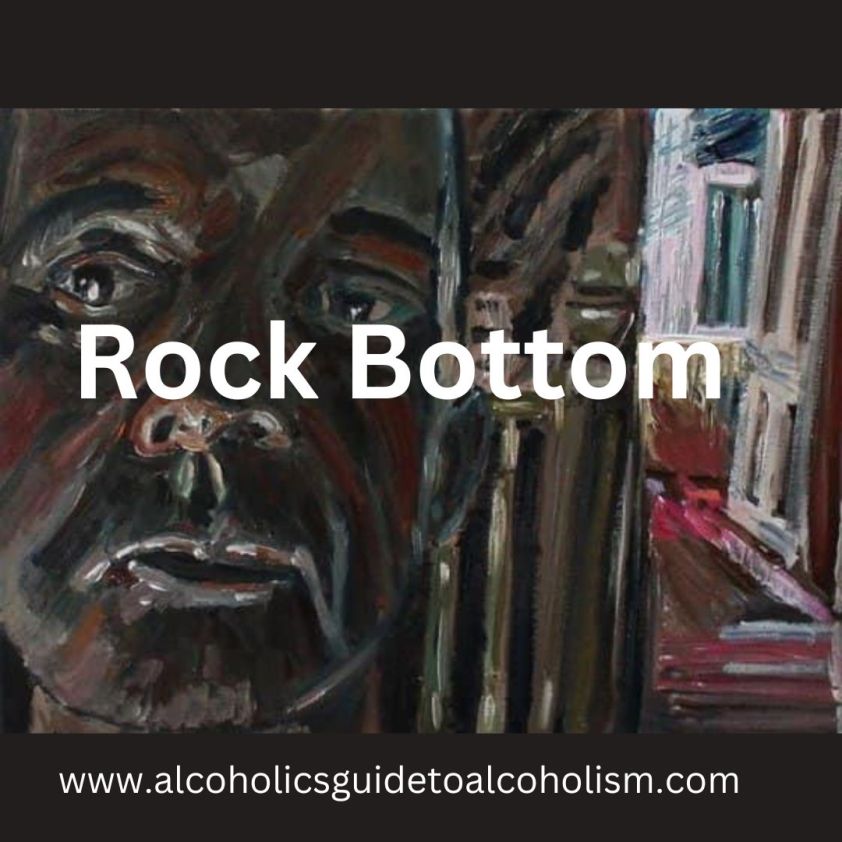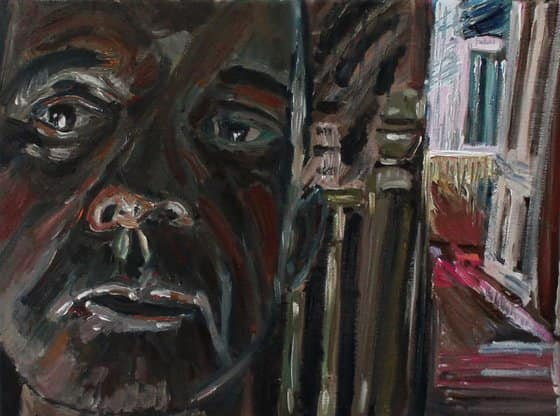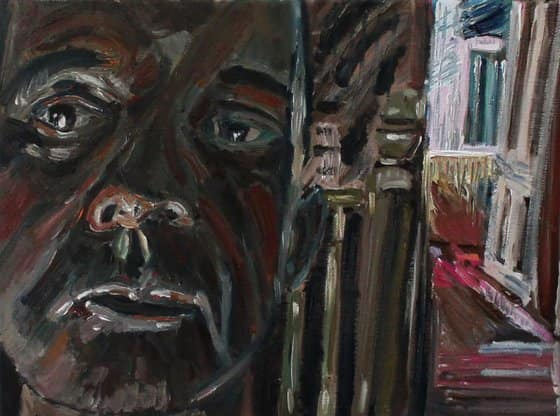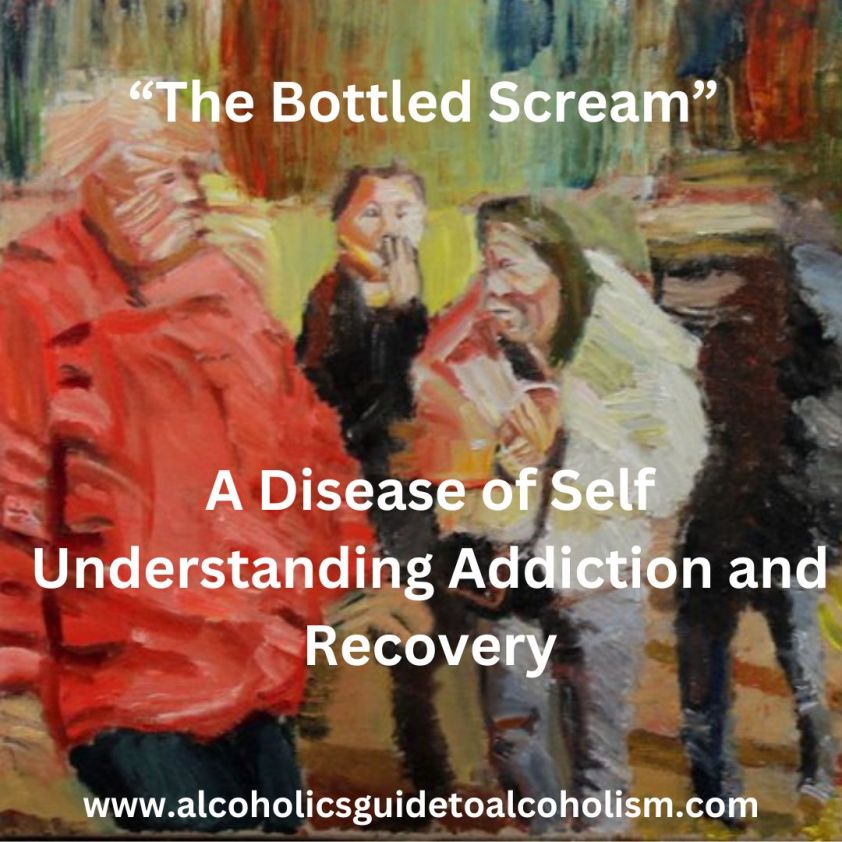This is part of a series called “The Bottled Scream” A Disease of Self – Understanding Addiction and Recovery. To go back to the introduction click here.
Addiction
Chapter 2
Things can Ony get Better
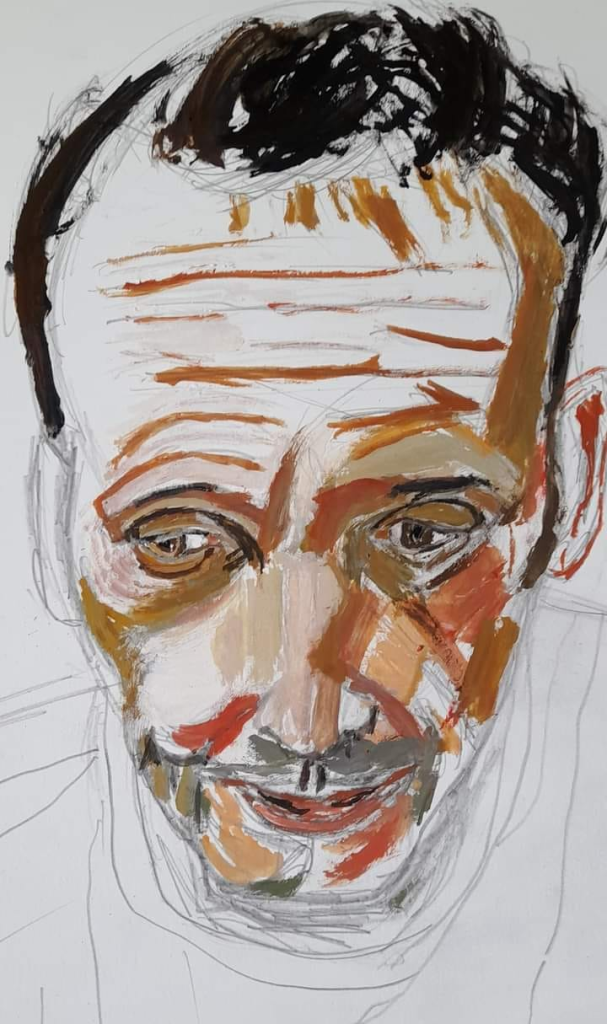
It was only when my wife withdrew from me after she had exhausted all possibilities to try and help me—taking me to mental health professionals but with no success—that I asked her for the first time for help. It was the first time I had directly asked for help. Well sort of asked for help. I was in the bathroom under the pretext of having a bath, something I had not done in many months (I had also developed an actual phobia of water, not uncommon in alcoholics). I stood there in front of her, half naked and asked her if she thought I was a bit jaundiced, in an unusual moment of understatement.
Her face retracted with shock, she hadn’t seen me in many weeks as I lived as a crazy recluse in the attic and we rarely saw each other – other than talking through doors and written reminders to buy wine and lots of it! She could hear me clicking bottled wine glass and tins of beer against my teeth as I tried to drink and this had added to her general sense of revulsion and despairing helplessness. Workaholism and fitness addiction had kept her petrified mind together these last months. Most days she would retrun from work wondering if this was the day, the day in which I had finaly killed myself? What unbearable and intolerable strain she must have lived under?
“Jesus, you’re…!” she exclaimed…
“I thought so” I replied. I looked like Homer Simpson with a heavy suntan! With a massive green discoloration snaking around my neck. I already knew I was jaundiced three months earlier when the local shop owner couldn’t contain himself and shouted “look at you, are you ill man!” which is partly why I didn’t go out, the excruciating shame of that and it’s probable repeat and the increasing psychosis, of course. Plus I could barely walk anymore. I knew I was jaundiced I just wanted Emma to know how bad it was and in realising how bad it was, offer to somehow help in a way that had yet to show itself. Or in a direction we had yet to exhaust. We had already tried various therapists to no avail. I was pretty desperate by this stage. Beyond desperation.
Plus, I also couldn’t rely on my half working eyes anymore and anyway, I needed absolute verification. God damn it, I needed help! Needed it months ago! Things were very much worse than I thought. Which, somehow, by this stage, seemed impossible. Emma seemed spurred into action and suggested going to the GP tomorrow. The GP? I was still in psychosis and wondered if he could do a home visit?He couldn’t and the next day in the late afternoon we would drive over the surgery. Getting out of the house had become impossible I lived in fear of someone coming to our home and kept a hammer and monkey wrenches by every door and window, proclaiming to my future imaginery intruders that I was ready for them. Paranoid psychosis isn’t a lot of fun. But it is thorough and leaves you well prepared. Emma had even tried to get me sectioned, put into a mental health institution but they only accepted after suicide attempts or attempted murder and given my current weak physical state, these two scenarios seemed remote. Plus all medicines had long since been stored away by Emma, for obvious reasons.
The GP did, however, make allowance for my deteriorating mental health by suggesting I turn up after practice hours and sneak in through the back doors? This was a blessed relief not having to face the public and their horrified looks. I drank two bottles of wine and slurped down a couple of tins of the strong and disgusting German lager in the car, trying not to throw up, as we waited to be sneaked in to the surgery via the tradesman’s entrance. Emma helped me walk to and in through the back of the surgery where the GP met us.
He listened in some incongruity to us explaining how my drinking had got out of hand, probably spurred on by my tough childhood, my mental health problems and so on. He seemed defensive, his arms across his chest. He was resisting our prognosis. He listened but didn’t seem convinced by our reasons for my drinking so much and bluttered out quite brutally.
“You are an alcoholic man! “Plain and simple, and if you keep drinking like this, you will be dead in a few months!”
Emma and I looked at each other. Of course, he was right. It seems so obvious now but at the time it was an epiphany. Of course I was a bloody alcoholic. I was physically addicted to alcohol, for some that would have been a bit of a giveaway but strangely not me, or, even more strangely, not Emma? A strange fog had settled on her thinking too. The panic attacks and the physosis and muddied the water. How come we hadn’t worked this out ourselves? It was now so obvious.
I wondered why the Drug and Alcohol Centre hadn’t released this too? I had turned up to the noon meeting having drunk two bottles of wine? Some would have seen this as a clue to potential alcoholism? More important than those underlying conditions, they kept talking about. Or the two therapists I had seen over the last three years. One who had seen me for two years and then when I returned subsequently for therapy, told me I didn’t have enough brain left to continue therapy (and how later would say me in recovery if I had suddenly decided to be a good boy when she learnt of my recovery!) and another who insisted I listen to white noise around the clock to treat the trauma that was obviously leading to my excess drinking. Obviously, it increased my drinking. Didn’t people know anything about alcoholism or addiction? How could the therapeutic world be so ignorant. Almost willfully ignorant!
Another terrible irony of this whole scenario, is that the GP I saw was only filling in for my usual local GP, who had failed in seven years to realise I was alcoholic, choosing instead to treat me with anti depressants for my depression and anxiety! If he had been there that day, I wouldn’t be here today. That is the terrible truth! He would not have said what this GP had just said, that I was an alcoholic! He probably would have tried to give me more medication. In the months that followed, he would try to dissuade me going to a local 12 step facilitated treatment centre because he thought it was too draconian. Not as draconian as chronic alcoholism though!? He, like most of the so-called professionals I saw, would treat me for something other than alcoholism, wondering if my drinking was linked to some other mental health issue.
They all failed to see that the mental health issue that I was suffering from, and that was going to kill me quicker than any other possible disorder, was my chronic alcoholism, my chronic addiction. I wouldn’t have any chance of treating any other mental health issue unless I dealt first with my addiction to alcohol. I still contend today that those individuals with addiction do not get any less addicted when they have treated other co-occurring conditions. The severity and complexity of their addiction may alter but they will remain addicted people in recovery.
As I show later treating these other conditions helps tremendously with recovery form addiction. I hope to explain, one condition feeds into another and they all have to be treated in the whole. Starting with addiction first! Start with the condition most like to kill you, and work backwards from there!

